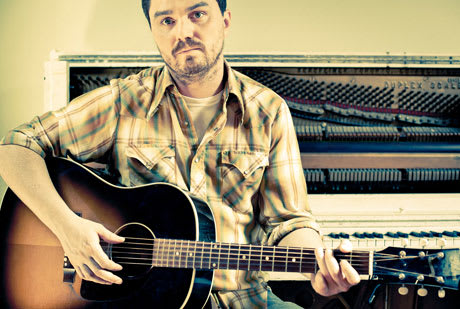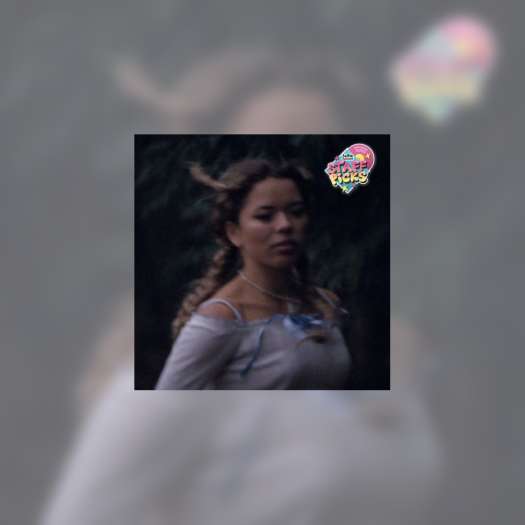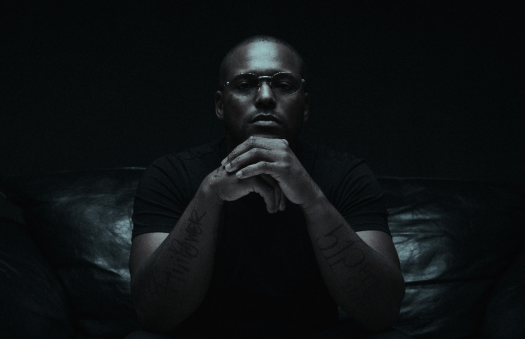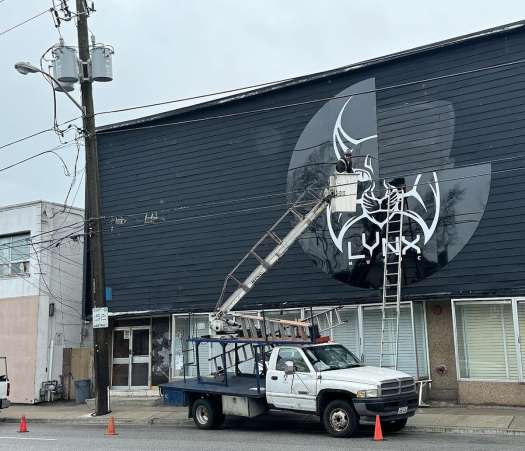This follow-up to Cockerill's 2008 debut, Summertime & Heartache, confirms the potential shown on that disc. Now Toronto, ON-based, the roots-rock songsmith recorded in Blue Rodeo's Woodshed studio, enlisting producer/engineer Stew Crookes and brother Joshua Cockerill as co-producers. Given the strong production values on Festuca, three heads were better than one, while both Josh and Crookes also beef-up the guitar sound. Cockerill has a robust, honest vocal delivery, and his literate songs are nicely balanced between rousing country rockers like "Big Town" and "Highway Tonight" (if commercial rock radio was smarter, they'd be all over these) and slower, more reflective tunes like "Sorry," the lovely "Swing Low" and "Cancel the Show." "Motel Bible" features harmony vocals from Damhnait Doyle and is an album highlight. Themes of loss, longing and the road are prominent, as on the declaration in "Ian and Sylvia" that "Canadian highways can't keep this love apart." That song brings this very impressive album to a triumphant close.
Was it a fun record to make? I hear great things about the studio and Stew Crookes.
Cockerill: We had a blast ― very low-stress, just about encouraging each other back and forth. The band were pretty much just getting together. We played a residency at the Cameron House for a few months, and then went right into the Woodshed. You're all in the same room recording and all the beds and pretty much all the guitar solos happened live-off-the-floor. The only thing we added later was an acoustic guitar part for "Ian and Sylvia" and Damhnait's vocals.
Your brother, Josh, has his solo career too. How long has he been in the band?
Perhaps just under a year, from when we started at the Cameron House. I was getting a band together to make a record, so I asked him if he wanted to join. He has a lot of different ideas from me, but we come from the same spot in a lot of ways. Because of how familiar he is with me, yet not being me, I asked him to co-produce the record, help organise the players and so on. He has been an integral part of this for the last year. The way Josh plays guitar is always melody-driven, not ego-driven. He's a very tasteful player, so I'm very happy for him to take the lead on some songs.
There are many Canadian references in the lyrics. Do you feel like a cultural nationalist?
When I was a kid, we moved around a lot because my dad was military. I think there's a theme of distance and being away from home on the record. I was born in Montreal, my mother's French-Canadian and we spoke French at home. Then I grew up a lot in Western Canada and now I'm here in Toronto. It has been a very Canadian life so far, so that's what I write about.
People are curious about sibling rivalry. Has it gone smoothly with Josh in the band?
He hates it when I talk about it. When he toured with me a few years ago, we bickered a bit, but on our recent tour we got along super-great.
Are the songs strictly yours or do you give the others input?
I never tell someone, "play this." There's a shape I steer them into, but I'm a fan of their playing. I deliberately pick who I play with; they all have their sound. Josh was very helpful with the arrangements and Stew got involved there too. I try to let them be responsible for what they do, so that keeps them interested.
Having three co-producers is unusual. How did that work?
Production is an odd idea I haven't quite understood yet. In movies, it is whoever puts up the money. Here, the concept was definitely all mine, Josh helped steer where it went, but then Stew made all the technical decisions. So from a certain perspective, it is Stew's production and I'm the artist. It all depends on the way you look at it, but everybody seemed happy with this arrangement.
Were all these songs written since your 2008 debut album, Summertime & Heartache?
A lot of the songs I've been playing for the past three years, some with different lyrics or arrangements. The newest song is "Horses." Most have been tried on the road with the band; I think that does help. I see it as an album, rather than as a collection of singles. I think trying them out on the road helps give it that shape.
There's a mix of rockers and ballads on the album. Is that the way you naturally write?
I definitely try to put some ballads in there, but that is also how I write. It'd be fun to write an album full of slow songs. Maybe that's in the future.
Do lyrics come first or a melody?
They usually all come together. The bulk of a song will be written in five or ten minutes. I'll either be in a great mood or a bad mood. I'll grab an instrument or a pen, but usually an acoustic guitar. The first thing I hit will be a chord or a melody in my head and it happens very quickly. The words come out in that moment too, and then I'll revise it later. I revise words a lot, but I don't change the music a lot normally.
Enjoying being part of the Toronto scene now?
I love Toronto. There is so much of a scene here. You're all in confined quarters, with so many musicians, and everyone is so supportive. It is so much fun and I'm learning a lot. It's a great scene here.
I gather you actually studied music at Humber College in Toronto.
Yes I did. I was there the same year as my drummer, Dan. I was in the jazz program, doing jazz guitar, composition and arranging. My teachers included David Occhipinti, who was really helpful in my finding a direction, and Dave Restivo. I think that background comes out more in the live show. Even though there is a structure to the song, there is improvisation happening.
(Independent)Was it a fun record to make? I hear great things about the studio and Stew Crookes.
Cockerill: We had a blast ― very low-stress, just about encouraging each other back and forth. The band were pretty much just getting together. We played a residency at the Cameron House for a few months, and then went right into the Woodshed. You're all in the same room recording and all the beds and pretty much all the guitar solos happened live-off-the-floor. The only thing we added later was an acoustic guitar part for "Ian and Sylvia" and Damhnait's vocals.
Your brother, Josh, has his solo career too. How long has he been in the band?
Perhaps just under a year, from when we started at the Cameron House. I was getting a band together to make a record, so I asked him if he wanted to join. He has a lot of different ideas from me, but we come from the same spot in a lot of ways. Because of how familiar he is with me, yet not being me, I asked him to co-produce the record, help organise the players and so on. He has been an integral part of this for the last year. The way Josh plays guitar is always melody-driven, not ego-driven. He's a very tasteful player, so I'm very happy for him to take the lead on some songs.
There are many Canadian references in the lyrics. Do you feel like a cultural nationalist?
When I was a kid, we moved around a lot because my dad was military. I think there's a theme of distance and being away from home on the record. I was born in Montreal, my mother's French-Canadian and we spoke French at home. Then I grew up a lot in Western Canada and now I'm here in Toronto. It has been a very Canadian life so far, so that's what I write about.
People are curious about sibling rivalry. Has it gone smoothly with Josh in the band?
He hates it when I talk about it. When he toured with me a few years ago, we bickered a bit, but on our recent tour we got along super-great.
Are the songs strictly yours or do you give the others input?
I never tell someone, "play this." There's a shape I steer them into, but I'm a fan of their playing. I deliberately pick who I play with; they all have their sound. Josh was very helpful with the arrangements and Stew got involved there too. I try to let them be responsible for what they do, so that keeps them interested.
Having three co-producers is unusual. How did that work?
Production is an odd idea I haven't quite understood yet. In movies, it is whoever puts up the money. Here, the concept was definitely all mine, Josh helped steer where it went, but then Stew made all the technical decisions. So from a certain perspective, it is Stew's production and I'm the artist. It all depends on the way you look at it, but everybody seemed happy with this arrangement.
Were all these songs written since your 2008 debut album, Summertime & Heartache?
A lot of the songs I've been playing for the past three years, some with different lyrics or arrangements. The newest song is "Horses." Most have been tried on the road with the band; I think that does help. I see it as an album, rather than as a collection of singles. I think trying them out on the road helps give it that shape.
There's a mix of rockers and ballads on the album. Is that the way you naturally write?
I definitely try to put some ballads in there, but that is also how I write. It'd be fun to write an album full of slow songs. Maybe that's in the future.
Do lyrics come first or a melody?
They usually all come together. The bulk of a song will be written in five or ten minutes. I'll either be in a great mood or a bad mood. I'll grab an instrument or a pen, but usually an acoustic guitar. The first thing I hit will be a chord or a melody in my head and it happens very quickly. The words come out in that moment too, and then I'll revise it later. I revise words a lot, but I don't change the music a lot normally.
Enjoying being part of the Toronto scene now?
I love Toronto. There is so much of a scene here. You're all in confined quarters, with so many musicians, and everyone is so supportive. It is so much fun and I'm learning a lot. It's a great scene here.
I gather you actually studied music at Humber College in Toronto.
Yes I did. I was there the same year as my drummer, Dan. I was in the jazz program, doing jazz guitar, composition and arranging. My teachers included David Occhipinti, who was really helpful in my finding a direction, and Dave Restivo. I think that background comes out more in the live show. Even though there is a structure to the song, there is improvisation happening.




